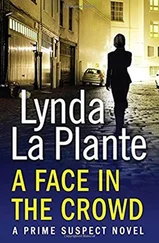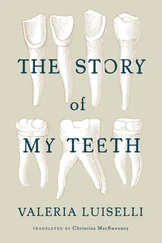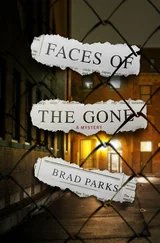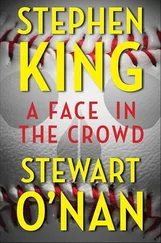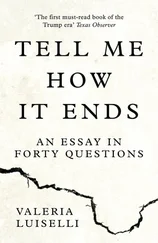You’re going to have a baby sister or brother, we announced to the little boy later that evening. He went on watching his cartoon.
I’d prefer a baby rabbit.
*
Salvatore gave me spaghetti for dinner. His apartment on the tenth floor of the building was full of books, cups, filing cabinets, useless things. They cried out for someone to impose a sense of narrative order. There was a bookcase crammed with LPs, but no longer anything to listen to them on. Salvatore pulled some out while he was cooking dinner. This one’s a gem, he said, Roberto Murolo’s early songs. I studied the track list, side A and side B: I didn’t know any of them. You’ve got to hear this one, it’s Neapolitan, too. And we’ll have to listen to this one together some day. The small mountain of records went on growing — I piled them on the dining table. When the meal was ready, Salvatore put them back in their places. While we were eating, in what was perhaps a petty form of revenge, I talked to Salvatore about Latin American authors he hadn’t read.
*
We’re having sweet tamales for dinner. During the meal we first talk about the Hiroshima bombing, because the boy wants to know what an atomic bomb is, and then about the singer from Joy Division, whose name we can’t remember. My husband embarks on a monologue about how he was one of the first people in the entire Spanish-speaking world to discover that band. We all nod and listen in silence. After a while, the boy interrupts him:
Can I say something too?
Yes.
I want to tell you both that I didn’t see the end of Raining Hamburgers because I fell asleep.
*
The men I slept with used to fall asleep immediately after having sex, while I suffered insuperable sleeplessness, especially if the person had been able to give me pleasure. In that other city, in that apartment, I simply got out of bed and sat at my writing desk. I used to study Owen’s portrait, which looked back at me like an apocryphal fruit from the autumn of yellow Post-its accumulating on the branches of the dead tree.
Owen had a distant, gloomy, spiritual face, like that of a religious martyr; high cheekbones, pointed chin, eyes disproportionately small. The body, languid, dispirited, submissive. Traces of Indian ancestry and an aristocratic criollo demeanor: none of the parts added up to the whole. I once read somewhere that personality is a continuous sequence of successful gestures. But the opposite was true of the man who appeared in the portrait: the fissures and discontinuities were obvious. Examining it closely, it was even easy to imagine the places where he’d attempted to cover a certain fragility with pieces of other personalities, firmer, more confident than his own.
*
My husband asks if it’s true that I can’t sleep after sex. I say:
Sometimes.
And what do you do when I fall asleep?
I hold you, listen to your breathing.
And then? he insists.
Then nothing, then I go to sleep.
*
During my second pregnancy, all I did was sleep. The contractions woke me up in the thirty-ninth week. My husband was reading beside me. I took his hand and placed it on the dome of my belly. Can you feel it? I asked. Is it kicking? No, it’s coming. My first labor had to be induced and I ended up having a cesarean because I wasn’t feeling anything, no contractions. This time, the sensation started in my lower back. An icy heat. Then, beginning in my sides, my skin raised itself up and tensed. A geological rather than biological phenomenon: a tremor, a slight arching, my entire belly rose up, like an emerging landmass, breaking through the surface of the sea. And the pain, a pain like a glint of light, the gleam of a comet, which leaves a trail, and fades away as incomprehensibly as it returns.
*
Note: Owen was born in El Rosario, Sinaloa. But that’s not important. He was born on February 4, 1904. Or perhaps May 13.
*
When I can’t sleep, I go into my children’s room and sit in the rocking chair. I listen to their slow breathing filling the whole room. The baby was also born on a fourth of February. The boy, on a thirteenth of May. Both were born on a Sunday.
*
I told Salvatore about the forgery. He had never heard of Gilberto Owen, but listened carefully to my rambling explanation. Owen had lived in Manhattan from 1928 through to 1930, at the height of the Harlem Renaissance and the beginning of the Great Depression. Although Owen left letters, some diary entries, and a handful of good poems, little is known of his period in New York. But it is known, I told Salvatore, that Owen lived in an old Harlem building opposite Morningside Park and that during those very years, on the other side of the park, Lorca was writing Poet in New York . A few blocks from there, Joshua Zvorsky was beginning his long poem That . Farther north, Duke Ellington was playing in Mexico’s. But Owen’s writings from that time give the impression that he hated New York and was, in fact, on the margins of all that. It’s most likely that he only came across Lorca once or twice, never met Zvorsky or saw Duke Ellington play.
So what? asked Salvatore.
So what what?
So what does it matter if he never met Lorca or saw Duke Ellington play?
It doesn’t, I’m just saying he could have.
Exactly, and that’s what matters.
*
The first installment of the sham transcription was a success. I arrived on Friday with a bundle of pages written in Word, 1.5 spacing, Times New Roman. White read them in front of me and was clearly interested, even enthusiastic. If they were indeed translations of poems by Owen made by Zvorsky, we’d found a treasure trove, I said. He replied that I was the best literary contranslator he’d ever met. Then he asked to see the original manuscript, which we both knew didn’t exist.
I had to fabricate the manuscript over the weekend, with the help of Moby — he was the only person I knew with the tools and the talent to forge such a thing. He turned up at my apartment with a 1927 Remington and old paper. We worked all weekend. As a sort of reward, we made love on Sunday. He told me he liked my breasts, though they were a bit small. I said: Thank you.
*
Note: Owen died blind, victim of liver cirrhosis, on March 9, 1952, in Philadelphia. He’d swollen up so much that he’d grown breasts.
*
We have a neighbor who breeds frogs. And Madagascar cockroaches to feed to the frogs. We meet him at the front door and the boy tells him that he has a dinosaur beside his bed, though it’s made of foam rubber, because the hard plastic one got broken.
Live frogs are better, says the neighbor, because they eat the mosquitos and cockroaches.
The boy looks at him steadily.
My dinosaur eats mosquitos and frogs. But he doesn’t eat cockroaches, he thinks they’re disgusting.
*
I returned to Detective Matias’s office many times. On my second visit, we had a coffee in the interrogation room while he asked me questions and I answered, convinced it was going to turn out that I was the guilty party. At that moment, looking Detective Matias in the eyes, I repented having stolen a calculator in my convent school at the age of eleven; I was assailed by the memory of the time a math teacher washed my mouth out with soap, arguing that I couldn’t go home with such a dirty tongue; all the books I’d stolen from so many libraries weighed on my conscience; the kisses I gave my girlfriend’s boyfriend; the ones I gave my girlfriend. And then there was the forged collection of poems by Owen, translated by Zvorsky.
How many whiskies did you drink that night? he asked.
Less than one — perhaps a half, or three-quarters of one.
How would you describe the individual who blocked your way when you were leaving the bar?
Читать дальше

